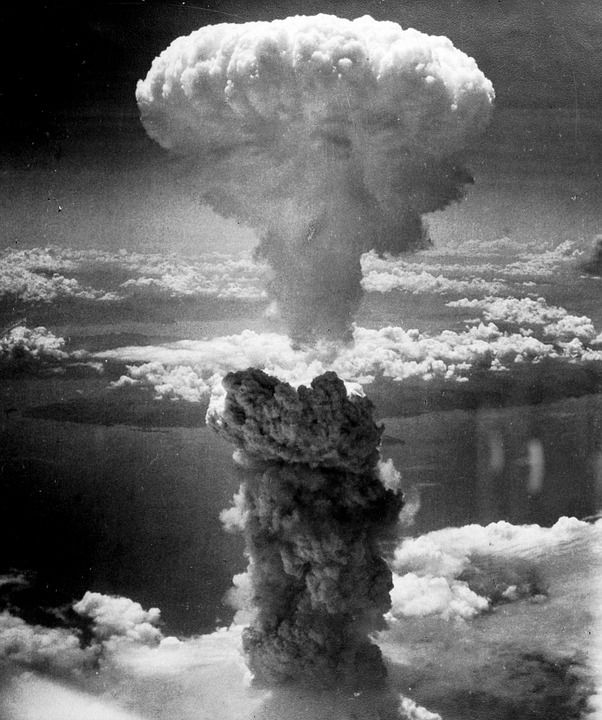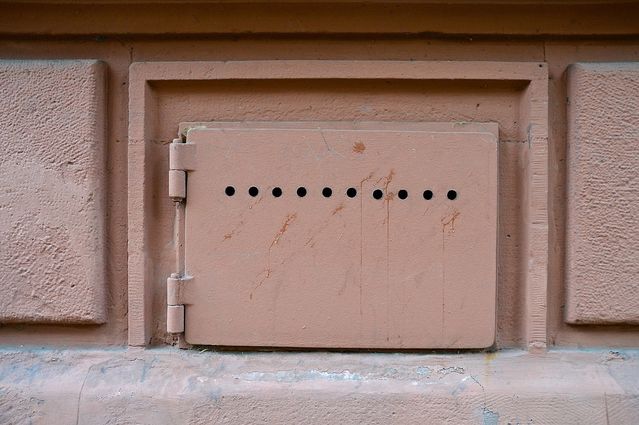
Who is afraid of nuclear war? I am.
I haven’t been so afraid since I was a kid growing up in St. Louis in the middle of the Cold War arms race with the Soviet Union when the nuns in school showed us how to “duck and cover” in the event of a nuclear attack. We were taught to hate the Soviets and to fear their treachery.
In my neighborhood, there was talk of constructing bomb shelters in our backyards—too small to accommodate everyone and too expensive to build. But I worried.
We did have a basement, and maybe the tiny fruit cellar (which had no windows) could be converted to a shelter? But what would we do for food and water? And what about going to the bathroom—the kind of thing that a sensitive eight-year-old girl might think about? We had a toilet in the basement, but it wasn’t in the fruit cellar. If we ventured out of our makeshift shelter what would happen to us? Would we be destroyed by nuclear fallout or radiation?
And then there was the Cuba missile crisis in the early 1960s when I was a sophomore in college, and we narrowly averted a nuclear confrontation with the Soviet Union.
And then there was the Vietnam War in the mid-1960s and 1970s, in which the use of nuclear weapons on the part of the US was seriously contemplated.
And then there was President Reagan’s Strategic Defense Initiative, or “Star Wars,” program in the early 1980s, which seemed to escalate the out-of-control nuclear arms race.
Born in 1942, before the use of the atomic bomb on Hiroshima and Nagasaki, I grew up in the shadow of nuclear war. I’ve managed this fear—especially in times of détente and the landmark INF (Intermediate-Range Nuclear Forces) Treaty signed by President Reagan and Secretary General Mikhail Gorbachev in 1987—but have never been entirely free of this anxiety.
It did abate after the fall of the Soviet Union and lessened a bit further when the Iran nuclear deal was signed by Iran, the United States and other members of the United Nations Security Council in 2015.
But the specter hasn’t left.
Not only does the United States no longer fear the growing power and influence of Russia under the regime of President Putin, but President Trump seems to absolve him of any or all possible wrong-doing when it comes to the U.S.
Yes, Trump’s aides and family members held meetings with Russian intermediaries during the lead-up to the election, and yes they discussed “dirt” on Hillary Clinton, but hey, no big deal. As for evidence of Russian attempts to meddle in the 2016 election (via computer hacks and fake ads placed on social media), that’s just a hoax.
Our president is cozying up to Russia while escalating a war of words with Kim Jong Un (whom he once declared that he would be “honored” to meet in person).
Here’s the thing.
Every time Trump insults Kim Jong Un, Kim Jong Un insults him right back. The difference is that Trump mostly Tweets, while his security advisors attempt to pursue diplomatic options, consisting of rallying our international allies to increase economic sanctions. The problem with this approach is that Kim Jong Un doesn’t care about sanctions. His people have starved before for the sake of their national identity and “sovereignty” (a term that Trump has recently adopted to describe his “America First” policy), and are prepared to make such a sacrifice again.
Each time Trump escalates his rhetoric, Kim Jong Un takes another action—firing test missiles in rapid succession, flying two of them over Japan and now threatening to shoot down American missiles in international waters and to detonate a nuclear weapon in the Pacific Ocean.
Words—as silly and childish as they are—are one thing; actions are something else.
There was a moment this last summer while I was visiting friends in the San Francisco Bay Area when I was so frightened of this insane and unnecessary build-up of tension between the U.S. and North Korea that I turned CNN on first thing in the morning to see if we were at nuclear war.
President Trump begins his day as early as 3:00, 4:00, or 5:00 a.m., tweeting into the void. It seemed entirely possible to me that he might have fired off a nuclear missile to “totally destroy” North Korea while I was sleeping.
I live in Minnesota, which I doubt that Kim Jong Un would target first—were he to choose such a course of action. Rather, he’d aim for the densely populated West Coast: Seattle, Los Angeles, or San Francisco.
Not only do some of my best friends and colleagues reside in this “target” area but so do my daughter, son-in-law, and grandchildren, who recently moved there.
We’ve been witnessing natural disasters—such as “the world has never seen before,” as Trump might say, in the last couple of weeks: Hurricane Harvey, Hurricane Irma, the 7.1 earthquake in Mexico and Hurricane Maria. Isn’t this enough to elicit our empathy and humanitarian aid? Do we really need a nuclear war to top it all off?
I’m not what you would call a “praying” person, but I have begun to pray.
May President Trump develop an understanding that everything that happens is not about him.
May someone near President Trump persuade him to stop Tweeting inflammatory messages when he is sleep-deprived and alone in the hour of the wolf.
May saner heads—among Trump’s aides, family members, members of Congress, and yes, even the “fake” news media—speak up clearly, boldly, and with a proper sense of alarm.
May ordinary citizens (like you and me) arouse ourselves to action to avert this slow-moving disaster.
If Ronald Reagan (a man I deeply distrusted and did not vote for) could negotiate a nuclear arms reduction agreement with a historic enemy of the United States, surely Trump (or his surrogates) could at least give peace and peaceful co-existence a chance.
What is the alternative?
Duck and cover.





